0
Communications
Community:
Apr 9, 2025
Every infant and toddler deserves a safe, stable, and nurturing start in life. That’s why Housing Is has joined forces with Prevent Child Abuse America, SchoolHouse Connection, and ZERO TO THREE to launch Thrive From The Start—a cross-sector effort dedicated to addressing homelessness among infants, toddlers, and expectant parents. Visit thrivefromthestart.org to learn more and explore how you can be a part of the solution.
Authored by:
Topics: Early childhood, Health, Homelessness, Housing, Pre-natal
 Shared by Housing Is
Shared by Housing Is
Housing Is posted a
on Apr 9, 2025
Every infant and toddler deserves a safe, stable, and nurturing start in life.
0
Webinar
Community:
Mar 5, 2025
The 2024 rate of U.S. homelessness increased by 18% over the previous year, with a 39% rise in families experiencing homelessness. According to an annual survey conducted in communities across the country, more than 770,000 people were living in shelters or outside—the largest number since the report was initiated in 2007. Our panelists will provide historical context for homelessness in the United States, as well as research findings on the effectiveness of various policy and practice approaches to decreasing homelessness and supporting unhoused families and individuals.
Cindy I-Fen Cheng, Robinson Edwards Professor of American History and Asian American Studies, University of Wisconsin–Madison
Katherine Levine Einstein, Associate Professor of Political Science, Boston University
David Phillips, Research Professor of Economics, Wilson Sheehan Lab for Economic Opportunities, University of Notre Dame
Authored by: The Institute for Research on Poverty (IRP)
Topics: Homelessness, Housing
 Shared by Housing Is
Shared by Housing Is
Housing Is posted a
on Mar 31, 2025
The Institute for Research on Poverty (IRP)
The 2024 rate of U.S. homelessness increased by 18% over the previous year, with a 39% rise in families experiencing homelessness.
0
Publication
Community:
Nov 15, 2023
Homelessness and child welfare system involvement pose substantial challenges for families, but supportive housing can help them stay together and access secure housing.
Authored by: Michael Pergamit, Mary K. Cunningham for Urban Institute
Topics: Advocacy, Dual-generation, Healthy homes, Homelessness, Housing, Low-income, Stability
 Shared by Molli Caite Hughes
Shared by Molli Caite Hughes
Molli Caite Hughes posted a
on Nov 15, 2023
Michael Pergamit, Mary K. Cunningham for Urban Institute
Homelessness and child welfare system involvement pose substantial challenges for families, but supportive housing can help them stay together and access secure housing.
0
Publication
Community:
Nov 17, 2022
Lessons for funders and social change leaders in search of the best ways to collaborate across sectors to end homelessness.
Authored by: Seyron Foo, Raji Hunjan, & Amy Kleine for the Stanford Social Innovation Review
Topics: Funding, Homelessness, Housing, Low-income, Supportive housing, Youth
 Shared by Sandra Ware
Shared by Sandra Ware
Sandra Ware posted a
on Jan 3, 2023
Seyron Foo, Raji Hunjan, & Amy Kleine for the Stanford Social Innovation Review
Lessons for funders and social change leaders in search of the best ways to collaborate across sectors to end homelessness.
0
Case study
Community:
Oct 25, 2022
According to UN-Habitat, the world needs to build 96,000 affordable homes every day to address the
global housing crisis by 2030. Yet, better utilizing existing housing stock—through options such as shared
housing—can make a significant dent in the need to build more housing. With college students often
challenged to find affordable housing and many older adults living alone in homes with spare bedrooms,
these two groups are increasingly benefitting from living together. Universities are often well-suited to
facilitate students living and learning with older adults in nearby communities. Intentionally fostering
intergenerational engagement through places and programs can reduce loneliness, mitigate ageist
stereotypes, and help both groups to thrive.
Authored by: Stephanie Firestone and Julia Glassman for AARP Equity by Design
Topics: Community development, dual-generation initiative, Funding, Health, Homelessness, Housing, Mental health, Seniors, Youth
 Shared by Sandra Ware
Shared by Sandra Ware
Sandra Ware posted a
on Oct 25, 2022
Stephanie Firestone and Julia Glassman for AARP Equity by Design
According to UN-Habitat, the world needs to build 96,000 affordable homes every day to address the
global housing crisis by 2030. Yet, better utilizing existing housing stock—through options such as shared
housing—can make a significant dent in the need to build more housing.
0
Case study
Community:
Aug 1, 2022
Created by the Older Americans Act in 1973, AAAs are part of the national Aging Network. AAAs are the local leaders that develop, coordinate, and deliver a wide range of home and community-based services. These services include information and referral/assistance, case management, home-delivered meals and meals in
congregate settings, in-home services, caregiver supports, transportation, evidence based health and wellness programs, long-term care ombudsman programs, and more. People who receive services provided by AAAs have improved health and well-being, helping them remain in their homes and thrive in the community.
Authored by: U.S Administration for Community Living
Topics: Disabilities, Food insecurity, Homelessness, Housing, Low-income, Seniors, Supportive housing
 Shared by Sandra Ware
Shared by Sandra Ware
Sandra Ware posted a
on Oct 18, 2022
U.S Administration for Community Living
Created by the Older Americans Act in 1973, AAAs are part of the national Aging Network. AAAs are the local leaders that develop, coordinate, and deliver a wide range of home and community-based services.
0
Video
Community:
Jun 17, 2022
When public libraries and public housing authorities intentionally join forces, the benefits are real and lasting for those living in public housing. This session highlights the partnership between Cuyahoga Metropolitan Housing Authority (CMHA) and Cleveland Public Library (CPL). CMHA and CPL executive leaders will discuss how their agencies strategically aligned their vision for impact and are meeting community needs through the library’s free and accessible resources. CMHA and CPL leaders will also share strategies for creating effective cross-sector partnerships that can drive greater economic mobility and better education and
health outcomes for individuals and families.
Authored by:
Topics: Advocacy, Asset building, CLPHA, Education, Family engagement, Homelessness, Housing, Legislation & Policy, Literacy, Low-income, Supportive housing
 Shared by Karina George
Shared by Karina George
Karina George posted a
on Jun 17, 2022
When public libraries and public housing authorities intentionally join forces, the benefits are real and lasting for those living in public housing. This session highlights the partnership between Cuyahoga Metropolitan Housing Authority (CMHA) and Cleveland Public Library (CPL).
0
Video
Community:
Jun 17, 2022
The Vancouver Housing Authority collaborated with a Federally Qualified Health Center and a homeless crisis response system to develop a network of scattered-site and site-based supportive housing. This moderated discussion will cover how VHA paired Housing Choice Vouchers and public housing with a Medicaid-funded supportive housing benefit to serve people identified by the community’s Coordinated Entry as needing supportive housing. Speakers will also discuss the challenges faced through the process, model adjustments made, and evaluation of the work through matching housing data and Medicaid utilization data.
Authored by:
Topics: Advocacy, CLPHA, Data sharing, Family engagement, Health, Healthy homes, Homelessness, Housing, Legislation & Policy, Low-income, Research, Stability, Sustainability
 Shared by Karina George
Shared by Karina George
Karina George posted a
on Jun 17, 2022
The Vancouver Housing Authority collaborated with a Federally Qualified Health Center and a homeless crisis response system to develop a network of scattered-site and site-based supportive housing.
0
Report
Community: Youth
Nov 3, 2020
As housing costs have escalated and inequities persist across the country, many young people need flexible, empowerment-based investments to get stably housed and onto a path to thriving. To this end, direct financial assistance (“cash transfers”) with other supports offer a promising solution grounded in a robust global evidence base. The circumstances of COVID-19 amplify the importance of developing and evaluating youth-informed approaches to doing things differently.
This report shares results and implications of a year-long research and stakeholder engagement process that Chapin Hall conducted in collaboration with Point Source Youth to inform the development of a Direct Cash Transfer Program (DCTP) for youth experiencing homelessness. We look forward to piloting and rigorously evaluating a program based on these findings, starting in NYC.
Authored by: Matthew Morton for CHAPIN HALL AT THE UNIVERSITY OF CHICAGO
Topics: Community development, Funding, Homelessness, Housing, Low-income, Youth
 Shared by Housing Is
Shared by Housing Is
Housing Is posted a
on Nov 3, 2020
Matthew Morton for CHAPIN HALL AT THE UNIVERSITY OF CHICAGO
As housing costs have escalated and inequities persist across the country, many young people need flexible, empowerment-based investments to get stably housed and onto a path to thriving.
0
Report
Community:
Jun 6, 2019
Trends in Housing Assistance and Who it Serves
Authored by: PAHRC
Topics: Community development, Disabilities, Education, Funding, Health, Homelessness, Housing, Legislation & Policy, Low-income, Partnerships, Research, Seniors, Workforce development, Youth
 Shared by Keely Stater
Shared by Keely Stater
Keely Stater posted a
on Sep 10, 2019
Trends in Housing Assistance and Who it Serves
0
News Article
Community:
Jun 10, 2019
More than a half million renters have been evicted in Los Angeles County over the past eight years, according to a new report by Public Counsel and the UCLA School of Law that calls on county supervisors to adopt permanent rent control measures.
Authored by: Jenna Chandler for Curbed Los Angeles
Topics: Homelessness, Housing, Legislation & Policy, Low-income, Research, West Coast
 Shared by Housing Is
Shared by Housing Is
Housing Is posted a
on Jun 13, 2019
Jenna Chandler for Curbed Los Angeles
More than a half million renters have been evicted in Los Angeles County over the past eight years, according to a new report by Public Counsel and the UCLA School of Law that calls on county supervisors to adopt permanent rent control measures.
0
Publication
Community:
Opened in summer 2018 on the north side of Columbus, Ohio, Laurel Green Apartments is an affordable permanent supportive housing development for residents with mental health conditions.
Authored by: PD&R Edge Online Magazine
Topics: Homelessness, Housing, Low-income, Mental health, Supportive housing
 Shared by Housing Is
Shared by Housing Is
Housing Is posted a
on Jun 11, 2019
PD&R Edge Online Magazine
Opened in summer 2018 on the north side of Columbus, Ohio, Laurel Green Apartments is an affordable permanent supportive housing development for residents with mental health conditions.
0
Research
Community:
Jun 5, 2019
A new report by Chapin Hall at the University of Chicago finds that youth homelessness has its origins in early family experiences, including family homelessness. The findings make painfully clear that housing alone is insufficient to prevent and “end” youth homelessness, and that addressing youth homelessness alone, without explicit connections and fervent attention to family homelessness, will result in continued homelessness for all populations.
Authored by: SchoolHouse Connection
Topics: Early childhood, Homelessness, Housing, Legislation & Policy
 Shared by Housing Is
Shared by Housing Is
Housing Is posted a
on Jun 5, 2019
A new report by Chapin Hall at the University of Chicago finds that youth homelessness has its origins in early family experiences, including family homelessness.
0
Podcast
Community:
Jun 4, 2019
Truly understanding all the dimensions of the nation's housing affordability crisis requires listening to those with lived experience – people who have experienced homelessness and housing instability. In this episode, we look at issues of affordable housing through the stories of seven people across the country who have been directly impacted. These stories were captured by the campaign's partner at the "Where Will We Live" campaign at the National Housing Trust and Enterprise Community Partners. "Where Will We Live" amplifies the voices of those with lived experience and arms them with the knowledge to take action to ensure affordable housing resources are protected and expanded.
Authored by: Opportunity Starts at Home
Topics: Homelessness, Housing, Partnerships
 Shared by Housing Is
Shared by Housing Is
Housing Is posted a
on Jun 4, 2019
Opportunity Starts at Home
Truly understanding all the dimensions of the nation's housing affordability crisis requires listening to those with lived experience – people who have experienced homelessness and housing instability.
0
News Article
Community:
May 23, 2019
A rule proposed by the Department of Housing and Urban Development may allow single-sex shelters to turn away trans people.
Authored by: Tim Fitzsimons for NBC News
Topics: Homelessness, Housing, Legislation & Policy
 Shared by Housing Is
Shared by Housing Is
Housing Is posted a
on May 30, 2019
Tim Fitzsimons for NBC News
A rule proposed by the Department of Housing and Urban Development may allow single-sex shelters to turn away trans people.
0
Video
Community:
May 24, 2019
Join CLPHA and the Kresge Foundation as we announce the release of our new report, Eliminating Barriers to Postsecondary Success: Cross-Sector Collaborations to Improve Postsecondary Achievement for Students Served by Public Housing Authorities. The report provides an overview of promising practices at the intersection of public housing providers and higher education shared during a convening of five pioneering PHAs and their postsecondary partners. This press event is open to all attendees and will be immediately followed by a panel discussion, which will spotlight the innovative housing and postsecondary partners featured in the report.
Authored by: Housing Is, CLPHA
Topics: CLPHA, Communications, Education, Homelessness, Housing, Partnerships, Post-secondary
 Shared by Housing Is
Shared by Housing Is
Housing Is posted a
on May 24, 2019
Join CLPHA and the Kresge Foundation as we announce the release of our new report, Eliminating Barriers to Postsecondary Success: Cross-Sector Collaborations to Improve Postsecondary Achievement for Students Served by Public Housing Authorities.
0
Video
Community:
May 24, 2019
With ever-growing interest in the intersection between housing and health, researchers are evaluating the impact of cross-sector interventions. This session will bring together researchers to share insights from their work relevant to practitioners and policymakers.
Authored by: Housing Is, CLPHA
Topics: CLPHA, Health, Homelessness, Housing, Low-income, Partnerships, Research, Seniors
 Shared by Housing Is
Shared by Housing Is
Housing Is posted a
on May 24, 2019
With ever-growing interest in the intersection between housing and health, researchers are evaluating the impact of cross-sector interventions. This session will bring together researchers to share insights from their work relevant to practitioners and policymakers.
0
Video
Community:
May 24, 2019
Foundations often play a leadership role in forging innovative cross-sector collaboration. Hear from funders about their philanthropic giving and impact investing strategies aimed at expanding opportunity and improving long-term life outcomes for lower-income individuals and communities.
Authored by: Housing Is, CLPHA
Topics: CLPHA, Funding, Homelessness, Housing, Partnerships
 Shared by Housing Is
Shared by Housing Is
Housing Is posted a
on May 24, 2019
Foundations often play a leadership role in forging innovative cross-sector collaboration. Hear from funders about their philanthropic giving and impact investing strategies aimed at expanding opportunity and improving long-term life outcomes for lower-income individuals and communities.
0
Publication
Community:
May 15, 2019
The blog post and research on How Housing Matters focus on housing for survivors of intimate partner violence (IPV) and highlight the critical need to go beyond shelter in supporting survivors in overcoming abuse. Domestic violence and housing stability intersect in unique, multifaceted ways. Survivors from marginalized communities face even greater challenges as they navigate toward safety and stability. Promising emerging evidence shows what is working well, yet bringing these resources to all communities cannot be slow. Fully scaling and implementing survivor- and equity-centered approaches is crucial, and applying these approaches for all survivors will require housing and IPV providers to work together in new ways.
Authored by: Caroline Jones for How Housing Matters, The Urban Institute
Topics: Domestic violence, Homelessness, Housing
 Shared by Housing Is
Shared by Housing Is
Housing Is posted a
on May 20, 2019
Caroline Jones for How Housing Matters, The Urban Institute
The blog post and research on How Housing Matters focus on housing for survivors of intimate partner violence (IPV) and highlight the critical need to go beyond shelter in supporting survivors in overcoming abuse. Domestic violence and housing stability intersect in unique, multifaceted ways.
0
Publication
Community:
May 14, 2019
For many students experiencing homelessness, school is the only place of stability in their lives. Teachers play a crucial role in creating a classroom environment that is safe and supportive for all students, especially those who are highly mobile and have experienced the trauma that often accompanies homelessness. Here, we provide information and strategies that teachers and support staff can use to support the educational success of students experiencing homelessness.
Authored by: SchoolHouse Connection
Topics: Child welfare, Education, Homelessness, Housing
 Shared by Housing Is
Shared by Housing Is
Housing Is posted a
on May 15, 2019
For many students experiencing homelessness, school is the only place of stability in their lives.
0
Policy Brief
Community:
May 9, 2019
On May 9, the House Appropriations Committee passed its FY2020 appropriations bill for Labor, Health and Human Services, and Education. The House bill includes $100 million in FY2020 funding for the McKinney-Vento Act’s Education for Homeless Children and Youth (EHCY) program. This represents a 7% increase over the FY2019 level; if enacted, it would represent a 30% increase in EHCY funding since FY2017.
Authored by: SchoolHouse Connection
Topics: Child welfare, Funding, Homelessness, Housing, Legislation & Policy
 Shared by Housing Is
Shared by Housing Is
Housing Is posted a
on May 15, 2019
On May 9, the House Appropriations Committee passed its FY2020 appropriations bill for Labor, Health and Human Services, and Education. The House bill includes $100 million in FY2020 funding for the McKinney-Vento Act’s Education for Homeless Children and Youth (EHCY) program.
0
Video
Community:
Resident story gallery
Authored by: National Housing Trust and Enterprise Community Partners
Topics: Communications, Homelessness, Housing, Low-income
 Shared by Housing Is
Shared by Housing Is
Housing Is posted a
on May 13, 2019
National Housing Trust and Enterprise Community Partners
0
News Article
Community:
May 7, 2019
More and more, the homeless are making themselves at home in L.A.'s public places. Problems related to that population are putting a strain on city agencies.
Authored by: Rob Hayes for ABC 7
Topics: Funding, Homelessness, Housing, West Coast
 Shared by Housing Is
Shared by Housing Is
Housing Is posted a
on May 9, 2019
More and more, the homeless are making themselves at home in L.A.'s public places. Problems related to that population are putting a strain on city agencies.
0
Report
Community:
Recent research has begun to focus on the impact of housing instability, in its many forms, on child health and development. It is hypothesized that young children are at greater risk of adverse effects of living environments, as this time period serves as a critical window for establishing socialization and learning habits. Additionally, the effects of housing instability may be compounded when combined with other challenges faced by low-income families, such as lack of resources. Previous studies have found that housing instability is associated with deficits in overall academic achievement, emotional regulation, and verbal abilities.
Authored by: International Public Health Journal
Topics: Child welfare, Education, Health, Homelessness, Housing, Research
 Shared by Housing Is
Shared by Housing Is
Housing Is posted a
on May 9, 2019
International Public Health Journal
Recent research has begun to focus on the impact of housing instability, in its many forms, on child health and development.
0
Policy Brief
Community:
May 1, 2019
Stable housing plays a vital role in people’s recovery from substance use disorders (SUDs). An inability to pay rent and the threat of losing housing can lead to stress that triggers substance misuse and relapse. People experiencing homelessness who also have SUDs typically find it difficult to address their substance use without a safe place to live, because they often use alcohol or drugs to cope with the dangers of life on the streets. In 2018, Congress passed the SUPPORT for Patients and Communities Act (known as the SUPPORT Act), which provided a variety of new programs and funding opportunities to help states and localities address the opioid epidemic and broadly help people with substance use disorders.
Authored by: Center on Budget and Policy Priorities
Topics: Homelessness, Housing, Legislation & Policy, Low-income, Mental health, Research, Substance abuse
 Shared by Housing Is
Shared by Housing Is
Housing Is posted a
on May 2, 2019
Center on Budget and Policy Priorities
Stable housing plays a vital role in people’s recovery from substance use disorders (SUDs). An inability to pay rent and the threat of losing housing can lead to stress that triggers substance misuse and relapse.
 Shared by Housing Is
on Apr 9, 2025
Shared by Housing Is
on Apr 9, 2025
 Shared by Housing Is
on Mar 31, 2025
Shared by Housing Is
on Mar 31, 2025
 Shared by Molli Caite Hughes
on Nov 15, 2023
Shared by Molli Caite Hughes
on Nov 15, 2023

 Shared by Sandra Ware
on Jan 3, 2023
Shared by Sandra Ware
on Jan 3, 2023

 Shared by Sandra Ware
on Oct 25, 2022
Shared by Sandra Ware
on Oct 25, 2022
 Shared by Sandra Ware
on Oct 18, 2022
Shared by Sandra Ware
on Oct 18, 2022
 Shared by Karina George
on Jun 17, 2022
Shared by Karina George
on Jun 17, 2022
 Shared by Karina George
on Jun 17, 2022
Shared by Karina George
on Jun 17, 2022

 Shared by Housing Is
on Nov 3, 2020
Shared by Housing Is
on Nov 3, 2020


 Shared by Keely Stater
on Sep 10, 2019
Shared by Keely Stater
on Sep 10, 2019

 Shared by Housing Is
on Jun 13, 2019
Shared by Housing Is
on Jun 13, 2019

 Shared by Housing Is
on Jun 11, 2019
Shared by Housing Is
on Jun 11, 2019


 Shared by Housing Is
on Jun 5, 2019
Shared by Housing Is
on Jun 5, 2019

 Shared by Housing Is
on Jun 4, 2019
Shared by Housing Is
on Jun 4, 2019
 Shared by Housing Is
on May 30, 2019
Shared by Housing Is
on May 30, 2019
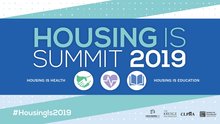
 Shared by Housing Is
on May 24, 2019
Shared by Housing Is
on May 24, 2019

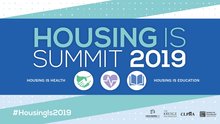
 Shared by Housing Is
on May 24, 2019
Shared by Housing Is
on May 24, 2019

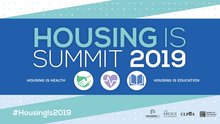
 Shared by Housing Is
on May 24, 2019
Shared by Housing Is
on May 24, 2019

 Shared by Housing Is
on May 20, 2019
Shared by Housing Is
on May 20, 2019
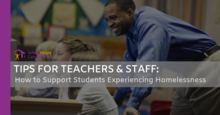
 Shared by Housing Is
on May 15, 2019
Shared by Housing Is
on May 15, 2019

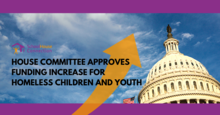
 Shared by Housing Is
on May 15, 2019
Shared by Housing Is
on May 15, 2019
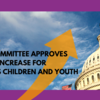
 Shared by Housing Is
on May 13, 2019
Shared by Housing Is
on May 13, 2019
 Shared by Housing Is
on May 9, 2019
Shared by Housing Is
on May 9, 2019
 Shared by Housing Is
on May 9, 2019
Shared by Housing Is
on May 9, 2019
 Shared by Housing Is
on May 2, 2019
Shared by Housing Is
on May 2, 2019



